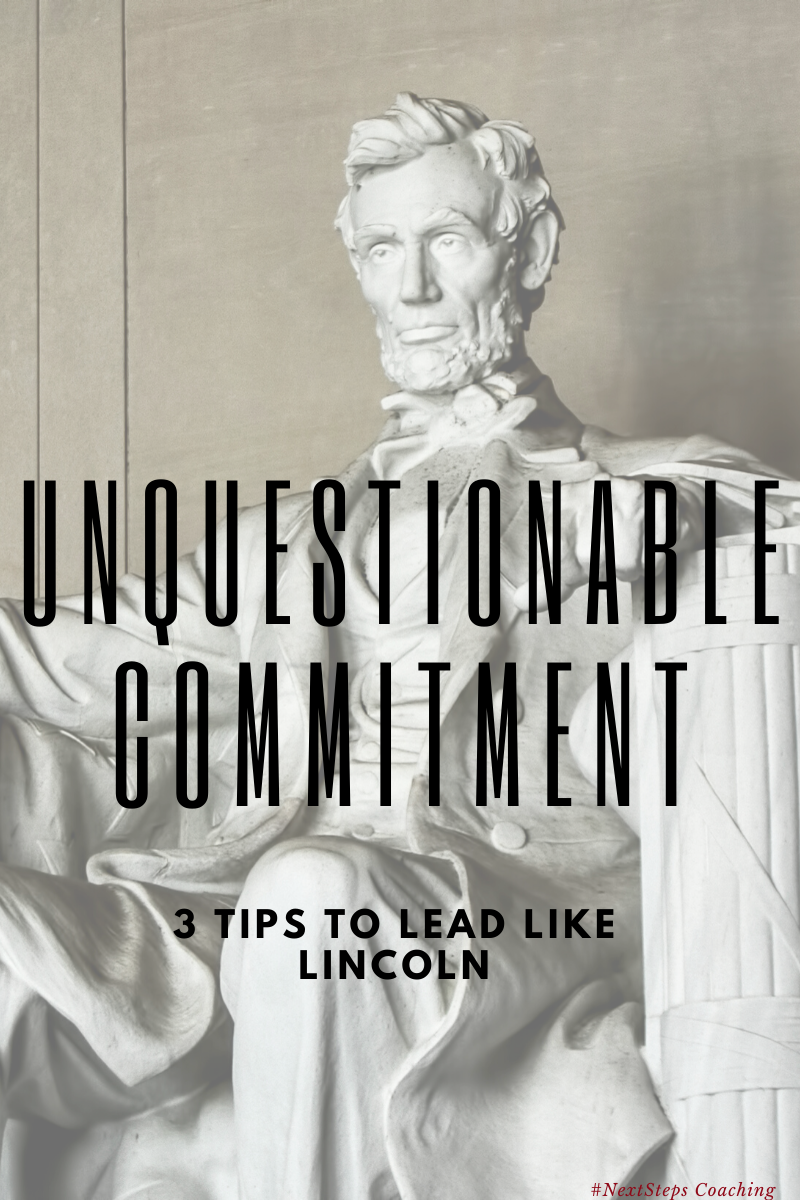
Even as a young child, Abraham Lincoln was a person of unquestionable commitment.
As the story goes, he would sit in his parent’s parlor late at night listening to the conversation the adults were having. At the conclusion of the evening, he would go upstairs to his room. Instead of getting going to bed, he would instead pace his bedroom replaying the conversation. It bothered him that there were parts of the conversation he didn’t understand.
So he would replay it in his head. Over and over. Analyzing every detail until it made sense. Finally content, he could go to bed.
That was a skill that would serve him his entire life.
He became a lawyer because he understood the facts of the case better than anyone else, analyzing the details meticulously.
Widely regarded as one of the great orators of all time, he acquired that skill through his commitment to understand and effectively use words.
At the outbreak of the Civil War, he was no tactician. His peers included highly regarded West Point graduates and brilliant generals of considerable experience. Yet by the end of the Civil War, he was on par with any them when it came to military strategy. In fact, it was his policy that eventually won the war when adopted by Ulysses Grant.
In all matters of importance, Lincoln dedicated himself to study, master, and unquestionable commitment.
Our Own Leadership
Much could be said about this level of commitment to our own leadership. At least one report acknowledges that upwards of 49% of employees are disengaged, while another eighteen percent are “actively disengaged.”
Our people, those we have been called to lead, are showing up work in larger and larger numbers disengaged from the work they have been given.
The trend is troubling.
It needs to change.
Change starts with us.
What does our own leadership journey look like? Are we actively engaged in personal our own growth? Do we display the same level of unquestionable commitment that Lincoln did? 
Lincoln spent time preparing. Whatever the circumstance or situation, he gave it his full attention. He committed himself to personal mastery and improving the outcome.
Change, personally and organizationally, starts in the mind of the leader. Our mindset, the way we approach not just our day but our every task will determine our ultimate outcome in life.
Those that watch us: family, friends, co-workers, direct reports, all will observe our actions and level of engagement and respond accordingly.
When our words and our actions don’t line up, they will always follow our actions.
Part of what we work on in the coaching relationship is showing up fully present. All areas of our lives must be accounted for. This means we pay attention to the following areas of health: spiritual, emotional, mental, physical, relational, and financial. When we show up, fully present, fully engaged, and unquestionably committed, we see great things happen.
Three Tips For Leaders
When you’re ready to bring an unquestionable commitment to all aspects of life, it can feel like a daunting task. To help you on that journey, here are things to do today that can start you on that journey.
1.) Eliminate Distraction
One of the greatest wastes of time and energy is mental distraction. Emails. Phone calls. Text message. Phone notifications. We live in a world that prides itself on distraction. Eliminate them. Close your email application. Silence your phone. Turn off notifications. Better yet, put your phone in another room for a full sixty minutes. Give the task at hand 100 percent of your focus. High-achievers always operate by this principle and it’s what allows them to get so much done in so little time.
2.) Focus On Strength.
When interacting with fellow employees or direct reports, focus on their strengths. As Don Clifton revealed in his StrengthsFinder book, the chances of being ‘actively disengaged’ in work drops to 1% when we focus on our strengths. Eliminate distraction. Then, focus on strengths. This is true for your own, and those of your employees. Improve performance and by focusing on strengths.
3.) Expect Mastery
Expecting mastery is different than expecting perfection. We don’t expect perfection. We do expect progress. From ourselves, our employees, and from those we lead. Create a plan for intentional growth. Make it clear and compelling. Then make it inspiring and motivating. Expect to master a subject. In short, you gain unquestionable commitment by practicing unquestionable commitment.

